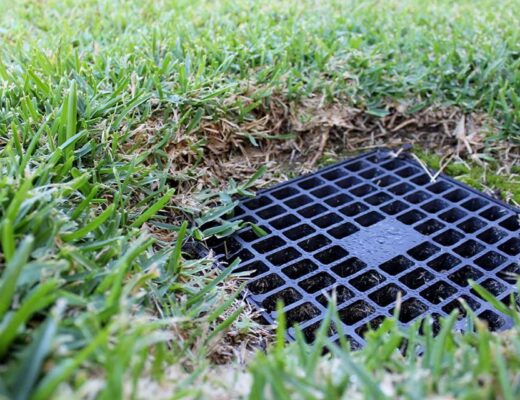Key Takeaways
- Sober living environments provide an essential communal support system during the post-treatment transition period.
- Sober housing MN offers a significant advantage for individuals in recovery by fostering long-term success through structured living.
- Financial considerations are crucial to accessing sober living, but some resources can help.
- Depending on how they’re structured, legal and policy frameworks can help and hinder access to sober housing.
- Community involvement and targeted education are needed to combat stigma regarding sober living facilities and their patrons.
Understanding The Foundations Of Sober Living
The concept of sober living is an avenue for recovery that bridges the gap between inpatient facilities and a return to everyday life. It represents an opportunity for individuals recovering from substance abuse to maintain their sobriety in a supportive and structured environment. A sober living home is essentially a residential facility providing a drug and alcohol-free zone for individuals who have completed formal rehabilitation. It embodies an intermediary phase that aids residents in adopting a substance-free lifestyle before returning to complete independence.
The tenets of sober living revolve around establishing a stable and supportive environment that empathizes with the journey to recovery. Residents must often observe curfews, partake in household chores, and attend regular house meetings. These rules are meant to replicate ordinary situations while instilling a sense of discipline and responsibility. The essence of community living within such homes is powerful; it creates a support network resembling a familial structure, where peers motivate one another and share experiences that contribute to personal growth and mutual understanding.
The Challenging Transition From Treatment To Normalcy
Sober Housing MN offers a safe and stable environment for individuals in early recovery. They provide structure, rules, and regular activities that promote healing and development. These homes can significantly reduce the risk of relapse by helping individuals build upon the foundational sobriety skills learned in rehab. Residents of sober living homes often find the camaraderie and accountability they need to transition to a sober lifestyle successfully.
The transition from a structured rehab environment to daily life can be challenging for individuals in early recovery. This period can be stressful as they try to reintegrate into society, re-establish professional roles, and mend personal relationships affected by previous substance use. It is a delicate moment that is often laden with temptations and old triggers that can jeopardize the progress made in rehab. Sober living homes provide a haven during this precarious time.
Sober Housing In Minneapolis: A Beacon Of Hope
Minneapolis has been at the forefront of offering comprehensive sober housing solutions that have become an integral part of the city’s framework for dealing with substance abuse recovery. The city has various sober living options that cater to different needs, preferences, and budgets, allowing a wide demographic of individuals in recovery to find a sober living situation that suits them. This broad approach to sober housing is vital in a city where the need for varying levels of support is as diverse as its population.
Sober living homes have become an increasingly vital resource within Minneapolis, providing impactful and essential support for individuals aiming to maintain sobriety and rebuild their lives.
The Financial Aspect Of Sober Living
While the strength and hope provided by sober living homes are invaluable, the financial commitment associated with them can be a concern for many. The truth is that the cost of living in a sober house varies, with some options available at a lower cost and others offering more amenities at a higher price. However, when considering the stability and support of sober living, the investment can be seen as a worthwhile contribution to long-term recovery success.
For those worried about how to afford sober living, various financial assistance programs and sliding fee scales are designed to help cover the cost of residency.
The Role Of Support Systems In Sober Living Environments
The backbone of any thriving sober living environment is its support system. It includes its structured programming or facilities daily interactions and encouragement from counselors, staff members, and other residents. These interactions help residents in recovery feel less isolated by reinforcing that their struggles are understood and shared.
Moreover, extending this support outside the home, many sober living environments emphasize rebuilding trust and communication with family members, who often play a critical role in the recovery process. Whether through visitation or organized family therapy sessions, the facilitation of these connections can lead to healed relationships and a solid support network after leaving the sober home.
Legal & Policy Framework Surrounding Sober Housing
Legal frameworks, policies, and local ordinances are paramount in shaping the accessibility and efficacy of sober living homes. These laws and regulations are designed to protect residents and the community, ensuring that homes meet safety and health regulations while providing the necessary support to residents. Potential residents and their loved ones must be aware of the legislative landscape surrounding sober living homes to understand better their rights and what to expect from these facilities.
Success Stories: Real-Life Impacts Of Sober Living
The true testament to the success of sober living is reflected in the enduring stories of its residents. Each story is a narrative of triumph over adversity, often resonating with hope, resilience, and transformation themes. These accounts help to demystify the recovery process and provide tangible proof of the effectiveness of sober living environments in fostering lasting sobriety. By celebrating and sharing these narratives, sober living homes not only inspire current residents but also provide powerful examples for individuals still struggling with addiction.
Maintaining Longevity In Recovery Through Sober Living
Sober living homes are not just about providing a temporary shelter but about fostering a way of life conducive to long-term sobriety. Re-engagement in productive and fulfilling activities is crucial as residents work towards reintegrating into broader society. Many sober living environments encourage pursuing educational goals, career advancement, and healthy recreational activities. These pursuits enhance personal development and reinforce an individual’s commitment to their recovery journey.
Looking Ahead: The Future Of Sober Housing In Urban Landscapes
The evolution of sober living is an ongoing process that reflects the changing needs of individuals in recovery and the societies in which they live. Urban centers are remarkably poised for innovation in this area, integrating sober living into city planning and community services to create accommodating and non-discriminatory spaces. This progressive integration promises to expand the reach and effectiveness of sober living homes, making them an integral part of the continuum of care for those seeking to overcome substance dependency.







No Comments